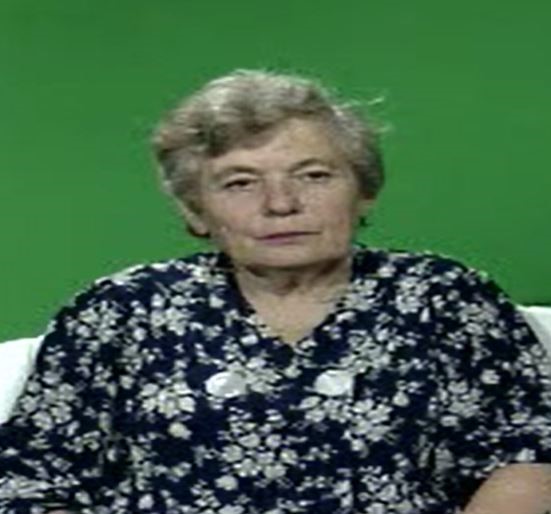Roza Khasina was born in 1924 in Odessa. Her mother died shortly after giving birth to her, so she and her two brothers were brought up by their stepmother. Roza's father Iosif was disabled, and he was an office worker. In the late 1930s, her elder brother was drafted into the Red Army; he was killed in action during the first days of the war. Following the outbreak of the Soviet-German War in June 1941, the family failed to evacuate from Odessa, and they remained under the Romanian occupation. In November 1941, Khasina's family was deported to Transnistria, where they went through a succession of camps and ghettos, such as Domanevka and Karlovka. Roza, her mother, and younger brother survived Transnistria.
In late March 1944, the so-called Transnistria Governorate was liberated by the Red Army. Roza Khasina and her family returned to Odessa, and Roza was recruited into the local MPVO (local anti-aircraft defense unit), where she served until the end of the war in May 1945. Her highest rank was that of corporal (yefreitor). She did not receive any military decorations, on the pretext that there were no enemy bombing raids against Odessa after April 1944.
Roza Khasina was discharged from the military in May 1945. She went on to work at the city telegraph.







